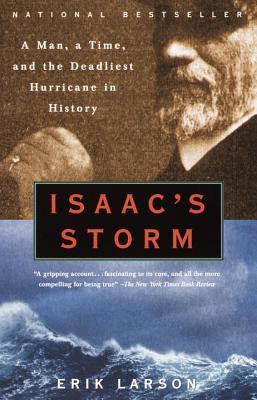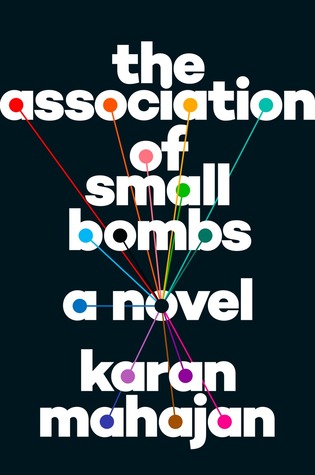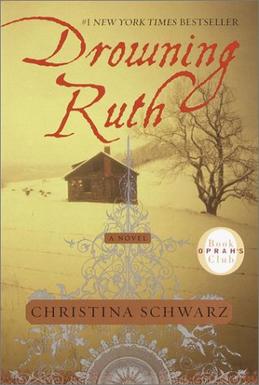Colson Whitehead's
The Underground Railroad is an interesting book. For me, it wasn't a page-turner; I was able to put it down for long stretches of time and not worry about what had befallen the characters. That being said, it is a thought-provoking book with many passages of beauty and truth.
In terms of both its construction (which occasionally leaped to other characters to present a wider angle) and its dark, dog-eat-dog tone, it reminded me of
The Grapes of Wrath (
read my review here).
However, where
The Grapes of Wrath hews closely to realism,
The Underground Railroad is something more akin to magic realism as it imagines the railroad as a literal network of rails below the ground. The stops along the railroad mirror real-world ideologies, each one different, connected only by their brutality and by one defining American rule: "anything they can't take away from you is yours."
Most of the book is told from the point of view of Cora, a slave on a Georgia plantation run by the Randall brothers, whose cruelty will be familiar to those who've read slave accounts such as
Frederick Douglass's.
Even among the slaves, Cora is an outsider. As a child, she was left to fend for herself when her mother Mabel ran away, leaving her alone at 8 years old to defend a beloved family garden plot from the other slaves. An older slave pulls up the garden and builds a doghouse on the plot, believing that he can take it from her because she is a child. Cora in turn destroys the doghouse and kills the dog with an ax. From that moment on, she is both undisputed owner of the plot and an outcast among her fellow slaves. This little anecdote at the beginning of story reinforces the idea that in America, anything you can hold onto is your property.
Cora eventually meets Cesar, an educated man who was taught to read by his previous mistress, but sold South to plantation life at her death. It is Cesar who asks Cora to run away, giving the excuse that since her mother was the only successful runaway in that part of Georgia, that she must be good luck. In a later chapter, narrated by Cesar, it's clear that he asks her because he has feelings for her.
Although Cora says no initially, she and Cesar do run, with a slave-catcher named Ridgeway in hot pursuit.
Ridgeway takes slave-catching extremely seriously; he imagines that each slave is his own property running away from HIM, which makes him indignant. He also is particularly hot to catch Cora, as Cora's mother is the only slave who has ever successfully evaded him.
Ridgeway's commitment to catching the slaves that he imagines are his property is grounded by a divine faith in what he calls "the American imperative." He says that the "true Great Spirit, the divine thread connecting all human endeavor" is "if you can keep it, it's yours...Your property, slave or continent...the American imperative" (80). It's a brutal philosophy, but it's hard to deny its American-ness, especially when you strip away fancy terms like "Manifest Destiny" or "lifting up the lesser races." Manifest Destiny, explains Ridgeway, is "taking what's yours, your property, whatever you deem it to be...And everyone else taking their assigned places to allow you to take it" (221).
However, Cora refuses to take her place in Manifest Destiny; she and Cesar manage to make it to the Underground Railroad, and ride a locomotive to South Carolina.
Colson Whitehead writes South Carolina utterly unlike historical South Carolina; he imagines it as a progressive, enlightened place that initially seems like paradise. However, it is eventually revealed as a cold, bureaucratic institution that exercises precise control over black bodies.
In South Carolina, slaves are purchased wholesale by the government to work for the government. They are paid with government scrip and live in government housing.
Cora's first government job is as a caretaker for a white family whose matriarch has a "nervous disorder" and her second is to pantomime black life for a white audience at a local museum, a job which she hates for its idyllic portrayal of slave life. While there she learns about American history, and how the land she worked for the Randalls originally belonged to Indians. "Stolen bodies working stolen land," she thinks, and likens America to an unstoppable engine whose "hungry boiler" is "fed with blood" (117). She wishes to give truth the museum's white visitors, but laments that "no one want[s] to hear it...truth [is] a changing display in a shop window" (116).
And like a display in a shop window, South Carolina is not as perfect as it appears to be. Cora and the other free black women who live off the government are required to visit a government doctor. On one such visit, the doctor encourages her to be sterilized for population control and to encourage her friends to do the same. Cora is uneasy, as she feels that sterilization is a way of "stealing futures in earnest" (117). Cora understands, instinctively, that he would never ask the same of a white woman, not even the mentally disturbed one that she works for; and the reader understands that at core, this progressive "welfare state" is only marginally more friendly to a Black American than plantation life.
Although she is uncomfortable, Cora is inclined to stay in South Carolina until she is tipped off that Ridgeway is looking for her. She is forced to run again, and takes the first train on the Railroad to North Carolina, where she finds the station empty, its entrance covered by rocks.
It turns out that the station has been caved in purposefully to hide all vestiges of the Railroad because North Carolina is a far more dangerous place than South Carolina or even the Randall plantation. In a drive for racial purity that invites comparisons to Nazism, the people of North Carolina have "solved" the problem of slavery by abolishing the black race.
Black men, women and children are hanged on discovery, and their bodies dangle for miles along the so-called "Freedom Trail" as a warning. Helping a black person is an offense punishable by death, and the people of North Carolina exist in a cycle of paranoia and mistrust, much like the climate of Nazi Germany. Neighbors and family members betray one another to the "Night Riders" who hang black people and complicit whites for sport every Friday night in the town square.
In several chapters reminiscent of
Anne Frank's diary, a frightened couple hides Cora in an attic for months, before she is ratted out by the cleaning woman and given to Ridgeway.
The next significant chapter takes place in Tennessee, which Ridgeway must traverse in order to return Cora and get his bounty.
Tennessee is painted as a burned out hellscape; it has just endured a large forest fire, and is in the grips of a yellow fever epidemic. Cora travels through Tennessee chained hand and foot to a wagon, along with another escaped slave who sings old time hymns about giving your burdens to Jesus, and the wrath of God. I read these chapters as an exploration of faith as an answer to injustice.
Cora initially buys into this idea, setting down Tennessee's devastation to righteous justice, thinking, "the whites got what they deserved...for enslaving her people, for massacring another race, for stealing the very land itself" (215). But as Cora tries to apply this notion of righteous justice to her own situation, chained to a wagon, being returned to her master only to be tortured alive as a warning to other slaves, she can't understand what she did to deserve this.
She begins to notice the random indifference of the devastation; one field is burned, another escapes the fire entirely. One town is laid with fever and another isn't. Tennessee, she decides, has a "taste for arbitrary punishment" (216).
Ultimately, Cora rejects the idea that justice will come from God or from nature; she calls the devastation "indiscriminate" and "the fruit of indifferent nature, without connection to the crimes of the homesteaders" (216). And as for herself?- "No chains fastened [her] misfortunes to her character or actions...her skin was black and this is how the word treated black people" (216). As for the slave who sings constantly, crying out to God, Ridgeway eventually tires of his singing and decides he isn't worth the reward money. He shoots him point blank in the face, his blood spattering Cora. Clearly, no justice is forthcoming from above.
Although she rejects the idea of divine intervention, Cora doesn't reject the idea of goodness altogether. She focuses on the people who have been kind to her, who've helped her; in her mind, they are not "reduced to sums, but multiplied by their kindnesses" (215). And kindness is shown to her once again as she is rescued from Ridgeway by an underground railroad conductor named Royal.
Cora's last major stop on the Railway is in Indiana. Cora spends her time there on the Valentine Farm, which is owned and run by black people, for black people. It is a haven for runaway slaves as well as freed slaves and thinkers. The Valentine Farm represents a far more idyllic and peaceful place than any in the book thus far, but like all good things, it can't last. The black orators and abolitionists who meet at the farm on Saturday evenings to discuss slavery and politics know that their presence is a threat to the surrounding white farms. Not only are they a significant cultural and economic presence, but many of them are also technically stolen property (runaway slaves).
That America is a menacing machine that moves relentlessly forward, its only desire to feed itself with profit, is already well-established in the book by now, and you can almost feel it lurching toward the Valentine Farm to reclaim its property, its "breathing capital, profit made flesh" (215). The intellectuals and orators kick around the idea of moving West to avoid violence, but unfortunately not soon enough.
The white men arrive, led by Ridgeway, and Cora is set in motion once more.
Ultimately the ending is hopeful, even though Cora is on the run once again. A brief interstitial chapter near the end of the book reveals what really happened to Cora's mother Mabel and the reason she was never caught by Ridgeway; and while a life of running is difficult, it is certainly presented as an acceptable alternative Mabel's fate.
Our last glimpse of Cora is on a wagon train heading West to California and the Gold Rush, driven once again by that great American locomotive of profit, even though she is only as a passenger, searching for a peaceful place to get off the train and stop running.











